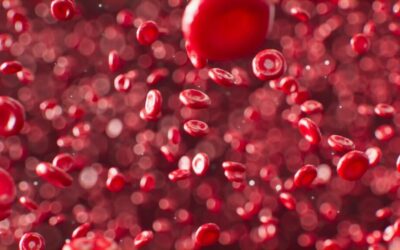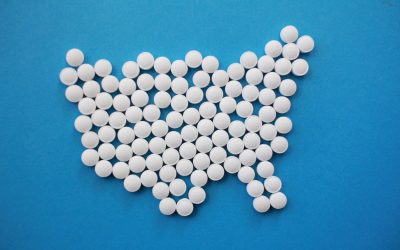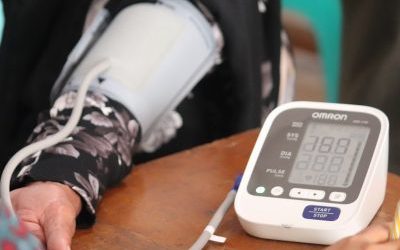FOR RESEARCHERS
THE ASPREE CLINICAL TRIAL (March 2010 – June 2017)
ASPirin in Reducing Events in the Elderly (ASPREE) was a large community-based clinical trial undertaken between 2011 and 2017 involving older adults in the US and Australia. 19,114 individuals participated: 2,411 from centers across the US and 16,703 participants from across south eastern Australia. While the Australian participants were mainly Caucasians aged 70 and above, approximately half of US participants were ethnic minorities aged 65 years and older. At recruitment all participants were free of overt cardiovascular disease, dementia and physical disability.
The primary objective of ASPREE was to determine whether low-dose aspirin (100mg) could prolong disability-free survival, i.e. life free of dementia or persistent physical disability. Secondary objectives aimed to determine whether low-dose aspirin reduced the incidence of cardiovascular disease, cognitive decline, depression, cancer, physical disability and major bleeding episodes. The principal results were published in the New England Journal of Medicine in September 2018.
THE ASPREE-XT FOLLOW-UP STUDY (June 2017 – current)
The ASPREE-XT study is continuing to follow-up the ASPREE participants following cessation of the randomized, aspirin or placebo, treatment phase. The large majority of participants are no longer taking aspirin. This phase of the study is aiming to determine whether any impacts of a prolonged course of aspirin therapy are delayed, as has been suggested with some cancers. ASPREE-XT, in conjunction with various sub-studies is also examining whether genetic, lifestyle or environmental factors that may contribute to the maintenance of health and identify other opportunities to prevent illness and disability in this age group.
The Berman Center for Outcomes and Clinical Research leads the ASPREE project in the USA, and Monash University leads in Australia.
AT A gLANCE
Project Features
- Large community-based cohort, mostly aged >70 years at enrollment
- RCT of 50% aspirin (100mg): 50% placebo for median 4.7 years
- Standardized data collection and management
- Endpoints adjudicated by clinical specialists blinded to treatment arm
- High levels of compliance with study procedures and medication
ASPREE Sub-studies
ASPREE embedded a series of sub-studies into the project. These have explored the impact of low-dose aspirin on other conditions associated with aging including hearing loss, macular disease, bleeding and anemia.
Published sub-study papers include: genomic studies, depression, epigenetics, falls and fractures, sepsis, and sex hormone studies in older women.
Documentation and data access
ASPREE Clinical Trial Protocol
Objectives and measures of the ASPREE clinical trial
- The primary objective was to determine whether low-dose aspirin prolonged life free of dementia or persistent physical disability in the healthy elderly.
- Secondary objectives related to the effects of low-dose aspirin on the key outcome areas of death, myocardial infarction/heart failure, stroke, dementia and cognitive decline, depression cancer, physical disability and major bleeding episodes.
Protocol summary
- ASPREE was a double-blind, randomized, placebo-controlled primary prevention trial to determine whether daily active treatment of 100 mg enteric-coated aspirin extended the duration of disability-free life in healthy participants, mostly aged 70 years and above.
- The study examined whether the potential benefits of low-dose aspirin (particularly the prevention of heart disease, stroke, certain cancers and dementia) outweighed the risks (particularly from GI bleeding and hemorrhagic stroke) in this age group.
- Participants were eligible for the trial if they did not have a current clinical indication for aspirin (i.e. overt cardiovascular disease) or contraindication (i.e. allergy or increased risk of bleeding) and did not have dementia, significant physical disability, low hemoglobin levels, or a condition that was likely to be fatal during the 5 years of the trial. All were capable of providing informed consent.
- Sample size estimate required 19,000 participants to provide 90% power of a true relative risk benefit of 0.90 for the primary endpoint (a composite of all-cause mortality, incident dementia and persistent physical disability) in an intention-to-treat analysis with an average follow-up of 5 years.
- The trial received financial support from the National Institute on Aging and the National Cancer Institute (NIA and NCI; part of the National Institutes of Health in the USA), the National Health and Medical Research Council of Australia, Monash University and the Victorian Cancer Agency.
- Bayer Pharma (Germany) provided in-kind support through the provision of low-dose aspirin and matching placebo and had no other involvement in the trial.
Download the ASPREE Clinical Trial Protocol
ASPREE-XT Study Protocol
Objectives and measures of the ASPREE follow up study, ASPREE-XT
- The primary objective of ASPREE-XT is to determine whether there are delayed effects after a median 4.7 years of treatment with daily low-dose aspirin. Suggestive evidence of such a ‘legacy’ effect has been identified with cancer and ASPREE-XT will provide an opportunity to confirm or refute this observation in a post clinical trial setting.
- Similar observations will be made on other outcomes including all-cause mortality, physical disability, cancer, dementia and cognitive impairment, depression and frailty and the incidence of cardiovascular disease.
- An additional objective is to study the impact of genomic, lifestyle and environmental factors on the maintenance of good physical and cognitive health amongst older adults.
Protocol summary
- ASPREE-XT is a longitudinal, observational follow-up study of ASPREE participants.
- The study will determine whether legacy effects of aspirin develop following an earlier period of treatment with low-dose aspirin.
- An additional objective is to identify genomic, lifestyle and environmental factors that may contribute to the maintenance of good health in older adults.
- Study methodology and measures are similar to that of the ASPREE clinical trial.
- ASPREE-XT is funded by the National Institute on Aging and the National Cancer Institute (NIA and NCI; part of the National Institutes of Health in the USA) and the National Health and Medical Research Council of Australia.
- The study is conducted in community settings.
Download the ASPREE-XT study protocol
Data Access and Collaboration
ASPREE clinical trial data is managed through a partnership of USA and Australian study collaborators. Data is available to partnering and external researchers for projects of appropriate scientific merit. Expressions of interest to analyse data from the ASPREE clinical trial and/or sub-studies including biospecimens, are co-ordinated through the ASPREE Access Management Site (AMS).
View a list of approved projects in the AMS here.
PI updates for researchers
ASPREE Update #9 (03.01.2022)
This brief update aims to keep researchers informed of developments with the ASPREE project. It is being sent to key ASPREE committee members, collaborators and end-point adjudicators. For further information about matters in this newsletter please feel free to contact a study PI.
Dear Colleagues,
ASPREE participants with moderate alcohol intake had a reduced risk of CVD events and death
Compatible with similar evidence of benefit from alcohol seen in studies of younger people
Confounding by association of alcohol use with socio-economic status and lifestyle factors cannot be excluded.
Neumann J et al. Eur J Preventive Cardiol 2021 DOI: 10.1093/eurjpc/zwab177
Low-dose aspirin (LDA) does not slow onset of frailty in older adults
Previously noted association of frailty with low-grade inflammation raised possibility that LDA might be beneficial
There remains no proven intervention effective in delaying frailty.
Espinoza SE et al. J Gerontol A Biol Sci Med Sci. 2021 Nov 10:glab340. doi: 10.1093/gerona/glab340
The draft US Preventive Services Task Force Statement recommends against the initiation of low-dose aspirin for primary prevention of CVD in adults ≥ 60 years
This new recommendation was significantly influenced by the results of the ASPREE RCT
The Task Force noted the role of aspirin in primary prevention would evolve ‘in the context of declining smoking rates, increasing statin use and more aggressive hypertension management’.
USPSTF. Aspirin use to prevent cardiovascular disease: preventive medication. Oct 12, 2021
Distributed on behalf of the ASPREE PIs
John McNeil (john.mcneil@monash.edu)
Anne Murray (AMurray@bermancenter.org)
Andy Chan (ACHAN@mgh.harvard.edu)
Danny Liew (danny.liew@monash.edu)
To subscribe to this newsletter please email john.mcneil@monash.edu.
View past ASPREE PI Updates
Page updated: July 15, 2024
NEWS FOR RESEARCHERS
Aspirin and anemia risk in older adults
Low-dose aspirin may increase anemia risk in healthy older adults: study A new study analysing data from the landmark ASPREE trial has found that prolonged daily aspirin use increases the risk of anemia by 20% in some older adults, mostly aged over 70 years (65...
Findings continue to impact aspirin guidelines
U.S. medical expert group latest to cite ASPREE results in guidelines Major findings from the ASPREE trial have been adopted into influential US Preventive Services Taskforce (USPSTF) new medical aspirin guidelines. The USPSTF recently announced a new recommendation...
Blood pressure variability associated with increased risk of dementia, especially in men
New analysis of ASPREE data reveals high long term blood pressure variability (BPV) in older adults, particularly men, is associated with an increased risk of dementia and cognitive decline








